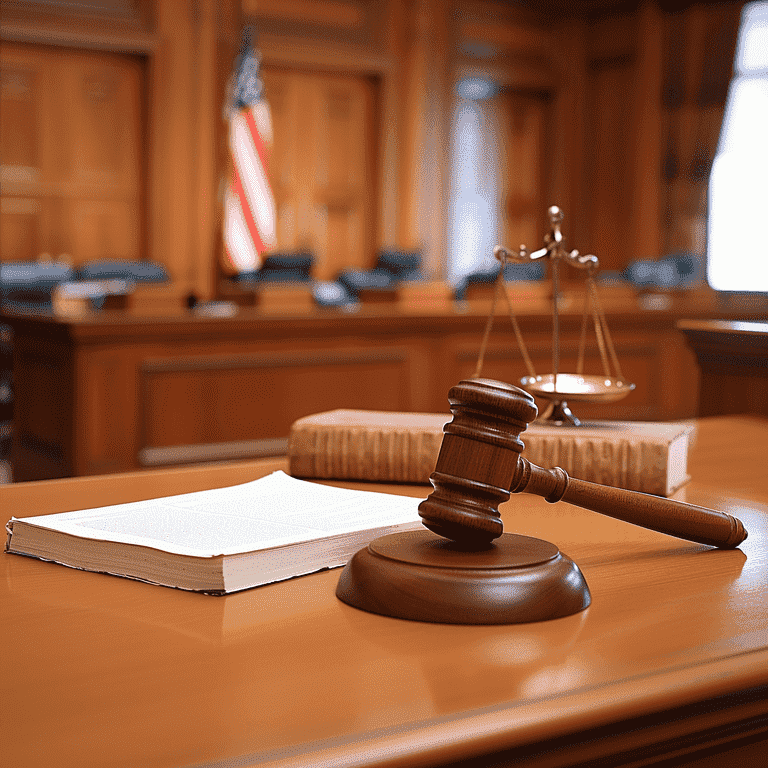Welcome to a comprehensive guide on DUI defense strategies in Nevada.
If you’re facing a DUI charge in the Silver State, understanding the laws and defense strategies available to you is crucial. DUI (Driving Under the Influence) laws in Nevada are strict, with severe consequences for those found guilty.
However, navigating these challenges becomes more manageable with the proper knowledge and approach.
This guide aims to provide a detailed understanding of Nevada’s DUI laws and the various defense strategies that can be employed in these cases.

 Understanding DUI Charges in Nevada
Understanding DUI Charges in Nevada
Definition of DUI in Nevada
In Nevada, DUI is defined as operating a vehicle under the influence of alcohol, controlled substances, or both. This includes any impairment that reduces a driver’s ability to operate a car safely, whether from alcohol, prescription medication, illegal drugs, or over-the-counter medication. It is important to understand this broad definition to recognize what constitutes a DUI in Nevada.
Blood Alcohol Concentration (BAC) Limits in Nevada
The legal Blood Alcohol Concentration (BAC) limit in Nevada is 0.08% for drivers aged 21 and over. For commercial drivers, the limit is lower, set at 0.04%. Nevada has a “zero tolerance” policy for drivers under 21. Any detectable amount of alcohol can result in a DUI charge. These limits are strictly enforced, and exceeding them is a primary factor in most DUI arrests.
Penalties for DUI Offenses
The penalties for a DUI in Nevada can be severe and escalate with subsequent offenses. A first offense typically involves fines, potential jail time, community service, and mandatory DUI education classes. Repeat offenses can result in increased fines and longer jail sentences. They could even lead to a felony charge. It’s crucial for anyone facing a DUI charge to understand these potential consequences.
Critical Elements of a DUI Offense
The Role of Probable Cause in DUI Stops
Law enforcement officers must have probable cause to stop a vehicle and suspect a DUI. This could be due to erratic driving, traffic violations, or involvement in an accident. Understanding the role of probable cause is vital. Any DUI defense strategy often scrutinizes the initial traffic stop’s validity.
Understanding Field Sobriety Tests
Officers commonly use field sobriety tests to assess impairment. These tests include the walk-and-turn, one-leg stand, and horizontal gaze nystagmus test. These tests are standardized. However, their accuracy can be influenced by various factors. For example, the driver’s physical condition or the environment where the tests are conducted.
Breathalyzer and Blood Tests: Procedures and Legalities
Breathalyzer and blood tests are used to measure a driver’s BAC. Understanding the procedures and legal standards surrounding these tests is essential. They play a critical role in DUI cases. In Nevada, drivers have impliedly consented to these tests. Refusing them can lead to separate penalties. However, how these tests are administered and the maintenance of testing equipment can be critical points of contention in a defense strategy.
In the following sections, we will delve deeper into common DUI defense strategies in Nevada. We will highlight how each approach can be tailored to specific circumstances of a DUI case. Stay tuned for insights that could make a significant difference in the outcome of a DUI charge.

Common DUI Defense Strategies in Nevada
Navigating a DUI charge can feel overwhelming. But, knowing the common defense strategies can be a game-changer. Several approaches can be taken in Nevada to challenge a DUI charge. Each approach is tailored to specific aspects of the arrest and evidence.
Challenging the Legality of the Traffic Stop
A fundamental strategy is questioning the legality of the initial traffic stop. Remember, law enforcement must have probable cause. If the termination was based on a hunch or an invalid reason, any evidence gathered after that could be deemed inadmissible. A traffic stop without proper cause can significantly weaken the prosecution’s case.
Questioning the Accuracy of Field Sobriety Tests
Field Sobriety Tests (FSTs) are not foolproof. G nervousness, physical disabilities, or inappropriate footwear can affect your performance. By highlighting these factors, your defense can argue that the FST results were unreliable. They should not be used as evidence of impairment.
Disputing Breathalyzer and Blood Test Results
Breathalyzer and blood tests are critical in DUI cases, but they’re not infallible. Your defense might question the device’s accuracy. They might question the qualifications of the person who administered the test. They might even question the timeline between the traffic stop and the trial. Calibration and maintenance records of the breathalyzer can also be scrutinized for inconsistencies.
Procedural Defenses in DUI Cases
Sometimes, the best defense lies in how the DUI process was handled.
Examining Arrest Procedures and Miranda Rights
If the arrest procedures were flawed or your Miranda rights (the right to remain silent and the right to an attorney) were not adequately conveyed, this could form a strong defense. Any deviation from standard legal procedures can jeopardize the prosecution’s case.
Analyzing the Chain of Custody for Blood Samples
In cases involving blood samples, the sample’s chain of custody must be flawless. If there’s any indication of mishandling, contamination, or mislabeling, the integrity of the blood test results can be questioned. This could lead to dismissing them as evidence.
Evaluating the Calibration and Maintenance of Breathalyzers
Breathalyzers must be regularly calibrated and maintained to ensure accurate readings. If there’s evidence that the device used in your case was improperly maintained or malfunctioning, its results can be contested. This aspect of defense requires meticulous examination of maintenance records. It also requires an understanding of the technical workings of the device.
The upcoming sections will delve into the role of legal representation in DUI cases. They will also explore alternative resolutions and plea bargaining. Understanding these aspects can empower you with the knowledge needed to navigate your DUI charge confidently. Stay tuned for more insights.

The Role of Legal Representation in DUI Cases
Facing a DUI charge in Nevada can be daunting. However, having an experienced defense attorney can make all the difference. Let’s explore why legal representation is beneficial and essential in these situations.
Importance of Hiring an Experienced DUI Defense Attorney
A skilled DUI attorney brings in-depth knowledge about Nevada’s laws and court procedures. They can navigate the complexities of your case. They identify the best defense strategies and work to minimize the impact of the charge on your life. An attorney’s expertise in questioning evidence, negotiating with prosecutors, and representing your interests in court is invaluable.
How a Defense Attorney Can Shape Your DUI Defense Strategy
Your attorney will evaluate every detail of your case. They will craft a defense strategy tailored to your unique situation. They’ll scrutinize police reports, witness statements, and evidence for discrepancies or procedural errors. An experienced lawyer knows how to challenge the prosecution’s case effectively. They might question the validity of a breathalyzer test. They might also argue against the legality of the traffic stop.
Alternative Resolutions and Plea Bargaining
Not all DUI cases end up in a trial. Sometimes, alternative resolutions can be a viable option. Understanding these alternatives can provide a pathway to a more favorable outcome.
Understanding Plea Bargain Options in DUI Cases
Plea bargaining is a common practice. You may plead guilty to a lesser charge in exchange for a more lenient sentence. This option can be particularly appealing if the evidence against you is vital. An experienced attorney can negotiate the best possible plea deal. This often results in reduced charges or penalties.
Exploring Diversion Programs and Other Alternatives
Nevada may offer diversion programs for first-time offenders or those with minor offenses. These programs typically involve alcohol education, community service, and other rehabilitation measures. Completing a diversion program can lead to reduced charges. It can even result in dismissal of charges. It provides a second chance to those who qualify.
Preparing for Your DUI Case in Court
If your case goes to court, being well-prepared is crucial. Let’s look at how to best prepare for a court appearance in a DUI case.
Gathering Evidence and Witnesses for Defense
Your defense strategy might involve presenting evidence or witnesses that support your case. This could include surveillance footage, witness testimony. It could also include records showing inaccuracies in breathalyzer maintenance. Collecting and organizing this evidence is critical to building a solid defense.
Strategies for Effective Communication in Court
Effective communication in court is vital. This means not only speaking clearly and respectfully but also understanding courtroom etiquette. Your attorney will guide you on presenting yourself. They will also help you respond to questions and make your case compelling to the judge and jury.
The following section will discuss the consequences of a DUI conviction in Nevada. It will provide a comprehensive view of the short-term and long-term impacts. This information is crucial for anyone facing a DUI charge. It underscores the importance of a robust defense strategy. Stay tuned for more insights into navigating the complexities of DUI cases in Nevada.

Consequences of a DUI Conviction in Nevada
Understanding the full scope of consequences that come with a DUI conviction in Nevada is crucial. These consequences extend beyond the immediate legal penalties. They can impact various aspects of your life.
Short-Term and Long-Term Impacts
In the short term, a DUI conviction can lead to fines, jail time, community service, and mandatory DUI education classes. Your driver’s license may be suspended or revoked, significantly affecting mobility. In the long term, a DUI can influence employment opportunities. Many employers conduct background checks. Insurance rates can skyrocket, and in some cases, you might face social stigma. Repeat offenses carry increasingly severe penalties. They can escalate to felony charges with even more drastic consequences.
Understanding License Suspension and Revocation
One of the most immediate impacts of a DUI conviction is the loss of driving privileges. The duration of license suspension varies based on the severity of the offense. It also depends on any previous DUI convictions. Daily activities, like commuting to work or taking your kids to school, can become challenging during this period. In some cases, you might be eligible for a restricted license. It allows limited driving under certain conditions.
Why You Haven’t Hired a Las Vegas DUI Attorney Yet
Watch this short video to take the next big step toward defending yourself against your DUI charge.

Breaking It All Down for You
This guide has walked you through the critical aspects of DUI defense strategies in Nevada. It began with understanding the nature of DUI charges. It continued by exploring various defense tactics. We’ve discussed the importance of legal representation. We’ve also talked about alternative resolutions and how to prepare for court. Remember, each DUI case is unique. The defense strategy should fit your specific circumstances.

Frequently Asked Questions
What's the difference between DUI and DWI in Nevada?
In Nevada, we use DUI (Driving Under the Influence) to describe driving under the influence of alcohol or drugs. While some states use DWI (Driving While Intoxicated), Nevada law doesn’t officially use this term. Both refer to impaired driving offenses.
Can I refuse a field sobriety test in Nevada?
Yes, you have the right to refuse field sobriety tests in Nevada. But remember, while there are no direct penalties, your refusal can be used as evidence in court and might affect the officer’s decision to arrest you for DUI.
Are there specific defenses for out-of-state drivers charged with DUI in Nevada?
Out-of-state drivers face the same DUI laws as Nevada residents but might encounter additional complexities. They should consult a Nevada DUI attorney for guidance on court appearances and dealing with the impact on their home state driving privileges.
How does a DUI affect my Nevada commercial driver's license (CDL)?
A DUI can result in serious consequences for commercial drivers in Nevada. A first offense can lead to a one-year CDL disqualification, potentially longer if transporting hazardous materials. Repeat offenses might lead to a lifetime disqualification.
Can I get a DUI expunged from my record in Nevada?
Nevada doesn’t allow DUI expungement, but under certain circumstances, you may qualify to have your record sealed after a specific period. Sealing differs from expungement as the record still exists but isn’t visible to the public.
What happens if I'm arrested for DUI while under 21 in Nevada?
Nevada has zero tolerance for underage drinking and driving. If you’re under 21 with any detectable alcohol while driving, you could face DUI charges, including license suspension, fines, and mandatory education programs.
Can a passenger in my vehicle be charged if I'm arrested for DUI?
Typically, passengers won’t be charged with DUI. However, if they contributed to impairment (e.g., providing alcohol), they might face related charges.
How long does a DUI stay on my driving record in Nevada?
A DUI conviction stays on your Nevada driving record for seven years. Repeat offenses within this window result in harsher penalties.
What should I do immediately after being arrested for DUI in Nevada?
After a DUI arrest, seek legal advice promptly. Contact a DUI attorney who can protect your rights, guide you through the legal process, and advise on the best steps for your case.
Additional Resources for You

Our lead attorney, Molly Rosenblum, Esq., has developed a comprehensive suite of resources to assist those facing DUI charges and to provide clarity on related legal matters. These resources are invaluable for understanding the intricacies of DUI laws, the potential consequences, and the various defense strategies that can be employed. Here’s a rundown of the resources available:
Las Vegas DUI Lawyer: Expert legal representation and guidance for those facing DUI charges in Las Vegas, ensuring knowledgeable and effective defense. Learn more.
DUI Consequences: A detailed exploration of the potential consequences of a DUI conviction, including legal penalties and long-term implications. Learn more.
DUI License Suspension: Insightful information on the process, duration, and implications of a license suspension following a DUI charge. Learn more.
DUI Plea Bargain: An overview of the plea bargain process in DUI cases, including when it may be considered and how it can impact the outcome of a case. Learn more.
Drug DUI: Guidance on handling DUI charges specifically related to drug use, understanding the legal distinctions and defense strategies. Learn more.
First Time DUI: Specialized information for individuals facing their first DUI charge, focusing on expectations, potential outcomes, and legal options. Learn more.
Second Time DUI: Key information and advice for individuals facing a second DUI charge, including the increased penalties and legal strategies. Learn more.
Marijuana DUI: A focused look at DUI charges related to marijuana use, discussing the legal standards, tests, and defense approaches. Learn more.
Nevada DUI Law: An overview of DUI laws specific to Nevada, providing essential information for understanding the legal landscape and potential implications. Learn more.
Las Vegas Legal Alcohol Limit: Clarification on the legal alcohol limit in Las Vegas, crucial for understanding the thresholds and legal definitions involved in DUI cases. Learn more.
These resources offer a wealth of knowledge and can serve as a starting point for anyone seeking to understand the legal complexities of DUI charges. Each link provides targeted information, designed to educate and assist in navigating through these challenging situations.

Offsite Resources You May Find Helpful
Here are several offsite resources that you might find useful in relation to DUI defense strategies and legal information in Nevada:
Nevada Department of Motor Vehicles: This official resource provides comprehensive information on driving laws in Nevada, including DUI regulations and license reinstatement procedures. Nevada DMV
National Highway Traffic Safety Administration (NHTSA): NHTSA offers valuable insights into DUI laws, safety guidelines, and the science behind field sobriety tests. NHTSA
American Bar Association: A general legal resource offering guidance on a variety of legal topics, including finding legal representation and understanding your rights. American Bar Association
- Mothers Against Drunk Driving (MADD): MADD provides support to DUI victims and advocates for stricter DUI laws. They also offer educational resources about the impacts of DUI. Mothers Against Drunk Driving
National Association of Criminal Defense Lawyers (NACDL): An organization representing criminal defense attorneys, which provides resources on criminal defense law and legal advocacy. NACDL
Legal Information Institute at Cornell Law School: An accessible legal resource offering detailed information on laws and legal issues, including DUI laws across different states. Legal Information Institute
These resources can provide additional information, support, and guidance, complementing what you’ve learned from the “Mastering DUI Defense Strategies in Nevada” guide.

A Special Message From Our Lead Attorney
Why You Might Need a Lawyer

Molly Rosenblum, Esq
Dear Reader,
Thank you for taking the time to read through our comprehensive DUI resources. I hope you found the information enlightening. I hope it helped you understand Nevada’s DUI laws and defense strategies.
The Rosenblum Allen Law Firm is committed to providing exceptional legal support and guidance. If you or someone you know is facing a DUI charge, we are here to help. If you have further questions about your specific situation, we can help with those too.
I invite you to schedule a free consultation with us to discuss your case in more detail. Please call us at (702) 433-2889; we will gladly assist you.
Remember, you don’t have to navigate this challenging time alone. We’re here to offer you the legal expertise and support you need.
Sincerely,
Molly Rosenblum, Esq.




